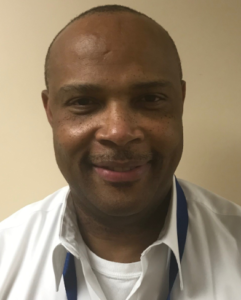Men of Color and Mental Health: Spotlight on Haitian and Cuban Communities
Stacey J. Drubner, JD, LICSW, MPH

EAP Ask the Experts: Coles Voyard RN, MSN & Fernando Rodriguez-Villa, MD, McLean Hospital
The past year prompted significant attention on disparities in the healthcare system. The incidence of poor medical outcomes for many in Black, Indigenous, and other People of Color (BIPOC) populations was exacerbated by and brought to light by the Pandemic. Although not as widely discussed as physical health issues, there were impacts on the prevalence, access and treatment for mental health of some in minority populations. The causes leading to mental health disparities are complex but may involve the following:
- Structural racism and trauma
- Social Determinants of Health
- Provider diversity & cultural competency
– Language barriers - Cultural beliefs, distrust, reluctance & stigma
As an important link between employees and the mental health system, the Employee Assistance Program (EAP) is committed to understanding and addressing mental health needs and concerns in minority communities. Solutions take time and involve many systems, but there are immediate steps that can be taken to work towards short-term improvements.
This article discusses cultural norms and beliefs about mental health for men of color, with a focus on the Haitian and Cuban communities. EAP News recently featured an article on stigma experienced by mental health patients. Men of color may be particularly impacted by stigma, stemming from cultural expectations and beliefs. Pre-COVID stress levels for some in these populations were only exacerbated by the Pandemic and concerns about recent unrest in some countries of origin such as Haiti and Cuba.
Assumptions about Mental Health and Ethnicity
- Individuals within cultural groups have a unique set of experiences that shape their beliefs and behaviors, but there are some common threads that may shed some light on barriers and potential solutions to improve mental health access and outcomes.
- Some individuals can be helped in non-traditional settings (community, church) and with related interventions. However, everyone should have the opportunity to benefit from traditional care avenues when they want or need help.


Spotlight: Coles Voyard RN, MSN & Fernando Rodriguez-Villa, MD - McLean Hospital
Coles Voyard and Fernando Rodriguez-Villa share their insights about mental health care for men in the Haitian and Cuban communities.
- Coles – Nurse Director, Clinical Evaluation Center, grew up in Haiti and came to the US to pursue a career in psychiatric nursing, to bring awareness and relief to those suffering with mental illness.
- Fernando – Medical Director, Short-term Unit, was born in Cuba and has worked in several healthcare settings. He has gained relevant perspective from his clinical experience, being embedded in the Spanish clinic at BWH, through teaching medical students and participation in the Patient/Family Advisory Committee at McLean.
Barriers to Seeking Treatment
Haitian community
- Concerns about not being welcomed or treated well
- Assuming they or their culture will not be understood
- Community beliefs that mental health is a myth or the result of Voodoo
- Viewing mental illness as a sign of weakness, rather than a medical condition, which involves a chemical imbalance
- Not understanding how to navigate the medical system
-Even in an emergency, there is a tendency to call a family member or person from the community rather than 911
Statistics show a high suicide risk for young Black males. What are the causes for this in the Haitian community?
- Getting help is “not cool” with Haitian teens and young adults
- There is added stress due to violence in communities
- Taboos around sexuality preferences result in untreated anxiety and depression
- Alcohol use is common and accepted at a young age. Many young men may self-medicate when they are under stress. This is compounded by a lack of understanding about the impact of alcohol on depression.
Cuban Community
- Mental Health is generally not discussed
- Talking about feelings does not come easily for Latino men
- It’s a weakness to have any problem, but especially an emotional problem
- Psychiatric issues are not a real or are “loco” (crazy)
- There is not a strong understanding of how mental health professionals can help
- Some Cubans prefer to seek help via prayer or through Santeria Traditions and Orisha Gods
- Dr. Rodriguez-Villa emphasized that the COVID virtual care model presented additional treatment barriers for Latino men
-Typically, access is increased when primary care can introduce patients to mental health providers informally while on site.
– This option was largely paused during COVID
Suggestions for Improving Mental Health Access and Usage for both Populations
Community outreach and education
- Both Fernando and Coles stressed the importance of having liaisons in the community to de-stigmatize the concept of mental health
-This might be via doctors/primary care, religious leaders, schools, and those who have benefitted from mental health assistance
-It’s preferable to start education with children at a young age - Fernando suggests not making assumptions that patients are knowledgeable about depression and anxiety, or the connection between alcohol, depression, and suicide
- Normalize mental health as a medical condition (with biological causation), just like diabetes
- Provide formal and informal navigators for accessing mental health assistance
Partnering with other medical professionals such as primary care
- Fernando discussed the importance of informal “warm” hand-offs in introducing and building a relationship with the mental health provider
- Providers can collaborate to read between the lines” diagnostically, with issues such as unexplained medical symptoms (headaches, gastro)
Meet the patient where they are
- Provide culturally competent care
-Offer interpreters as needed - Coles explained that McLean includes cultural background and needs as part of every assessment
-This translates to treating everyone as an individual - Start with what matters to the patient and build a relationship from there
-A Latino male may be more open to discuss an issue about his child than one about himself - Both Fernando and Coles recommend being inclusive of family and/or important community members in during treatment
- Utilize strengths to increase access and achieve better outcomes
-For example, being strong and having a thriving family is important, then stress that a healthy father, brother, etc. is best for a family
Tips for Patients who want to Discuss Culture with Providers (adapted from NAMI)
When meeting with a provider, it can be helpful to ask questions to get a sense of their level of cultural awareness. Providers expect and welcome questions from their patients or clients, since this helps them better understand what is important in their treatment. Here are some sample questions:
For your provider
- Have you treated other people from my community or received training in cultural competence for my community? If not, how do you plan to provide me with culturally sensitive, patient-centered care?
- How do you see our cultural backgrounds influencing our communication and my treatment?
- Do you use a different approach in your treatment when working with patients from different cultural backgrounds?
- What is your current understanding of differences in health outcomes for my community?
Considerations for you
- Did my provider communicate effectively with me?
- Is my provider willing to integrate my beliefs, practices, identity, and cultural background into my treatment plan?
- Did I feel like I was treated with respect and dignity?
- Do I feel like my provider understands and relates well with me?
Resources
MGH Psychiatry – Mental Health Resources for Black, Indigenous and People of Color (BIPOC)
Psychology Degree Guide – Mental Health & Wellness Resources for Students of Color
NAMI Blog – The Strengths and Stigmas of My Culture – Perspective from a Son of Cuban Immigrants
American Psychiatric Association – Working with Latino/a and Hispanic Patients
Medical News Today – What to know about Mental Health Stigma in Latin America
NAMI – Compartiendo Esperanza:No hay salud sin salud emocional
Desrosiers, A. & St. Fleurose, S. – Treating Haitian Patients – American Journal of Psychotherapy
NAMI – Mental Health & Black and African Americans
American Psychiatric Association – Working with African Americans and Blacks
McLean Hospital – How Can We Break Mental Health Barriers in Communities of Color?
Help from the EAP
The Mass General Brigham EAP is available to help with mental health issues and provides culturally-informed assessment and referrals. The Program offers free and confidential services for employees and immediate family household members. EAP records are separate from medical and HR records. Contact the EAP at 866-724-4327, or request an appointment via our online form for confidential assistance.






